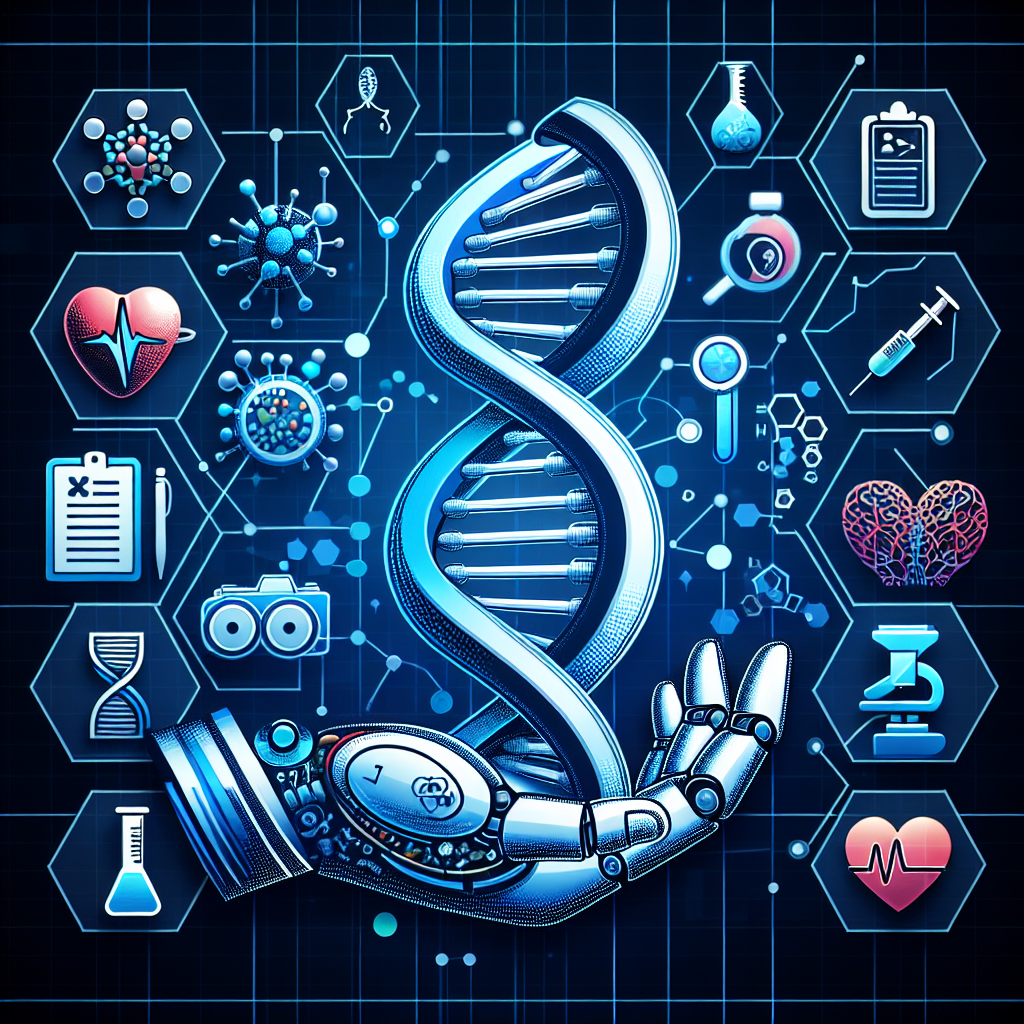In recent years, artificial intelligence (AI) has made significant advancements in various fields, including healthcare and medicine. One of the most promising applications of AI in this sector is the development of Artificial General Intelligence (AGI), which aims to create machines that can perform any intellectual task that a human can do. AGI has the potential to revolutionize healthcare and medicine by improving diagnosis, treatment, and patient care. In this article, we will explore the potential of AGI in healthcare and medicine and discuss how it can benefit patients, healthcare providers, and researchers.
AGI in Healthcare
AGI has the potential to transform healthcare in several ways. One of the key benefits of AGI is its ability to analyze large amounts of data quickly and accurately. This can help healthcare providers make more informed decisions about patient care and treatment options. For example, AGI can analyze medical records, imaging scans, and genetic information to help doctors diagnose diseases earlier and more accurately.
AGI can also improve the efficiency of healthcare systems by automating routine tasks, such as scheduling appointments, processing insurance claims, and monitoring patient progress. This can free up healthcare providers to focus on more complex and critical tasks, such as treating patients and conducting research.
Another potential application of AGI in healthcare is personalized medicine. By analyzing a patient’s genetic information and medical history, AGI can help doctors tailor treatment plans to individual patients’ needs and preferences. This can lead to more effective and personalized care, resulting in better outcomes for patients.
AGI in Medicine
In addition to its applications in healthcare, AGI also has the potential to revolutionize medicine. One of the key advantages of AGI in medicine is its ability to process and analyze vast amounts of medical research and clinical data. This can help researchers identify new drug targets, develop more effective treatments, and predict disease outcomes.
AGI can also help doctors and researchers better understand complex diseases, such as cancer, Alzheimer’s, and diabetes. By analyzing genetic data, imaging scans, and other medical information, AGI can identify patterns and trends that may not be apparent to human researchers. This can lead to new insights and discoveries that can improve patient care and treatment options.
AGI can also help accelerate the drug discovery process. By simulating the effects of new drugs on the human body, AGI can help researchers identify potential drug candidates more quickly and accurately. This can lead to the development of new treatments for diseases that currently have limited treatment options.
FAQs
Q: What is AGI?
A: AGI stands for Artificial General Intelligence, which refers to machines that can perform any intellectual task that a human can do. AGI is the next frontier in artificial intelligence research, aiming to create machines that possess human-like cognitive abilities.
Q: How is AGI different from other forms of AI?
A: AGI is different from other forms of AI, such as narrow AI and machine learning, because it aims to create machines that can perform any intellectual task, rather than focusing on specific tasks or domains. AGI is more flexible and adaptable than other forms of AI, allowing machines to learn and reason in a more human-like manner.
Q: What are some potential applications of AGI in healthcare and medicine?
A: Some potential applications of AGI in healthcare and medicine include improving diagnosis and treatment, automating routine tasks, personalizing medicine, accelerating drug discovery, and understanding complex diseases.
Q: How can AGI benefit patients, healthcare providers, and researchers?
A: AGI can benefit patients by improving diagnosis and treatment options, providing personalized care, and accelerating the development of new treatments. Healthcare providers can benefit from AGI by automating routine tasks, improving efficiency, and enhancing patient care. Researchers can benefit from AGI by analyzing vast amounts of data, identifying new insights and discoveries, and accelerating the drug discovery process.
Q: What are some challenges and limitations of AGI in healthcare and medicine?
A: Some challenges and limitations of AGI in healthcare and medicine include data privacy and security concerns, ethical considerations, regulatory challenges, and the need for human oversight and accountability. Additionally, AGI may not be able to fully replicate human intelligence and decision-making processes, leading to potential errors and biases.
In conclusion, AGI has the potential to revolutionize healthcare and medicine by improving diagnosis, treatment, and patient care. By analyzing large amounts of data, automating routine tasks, personalizing medicine, accelerating drug discovery, and understanding complex diseases, AGI can benefit patients, healthcare providers, and researchers. However, there are also challenges and limitations to consider, such as data privacy and security concerns, ethical considerations, regulatory challenges, and the need for human oversight. Overall, the potential of AGI in healthcare and medicine is vast, and its impact on the future of healthcare is likely to be profound.

